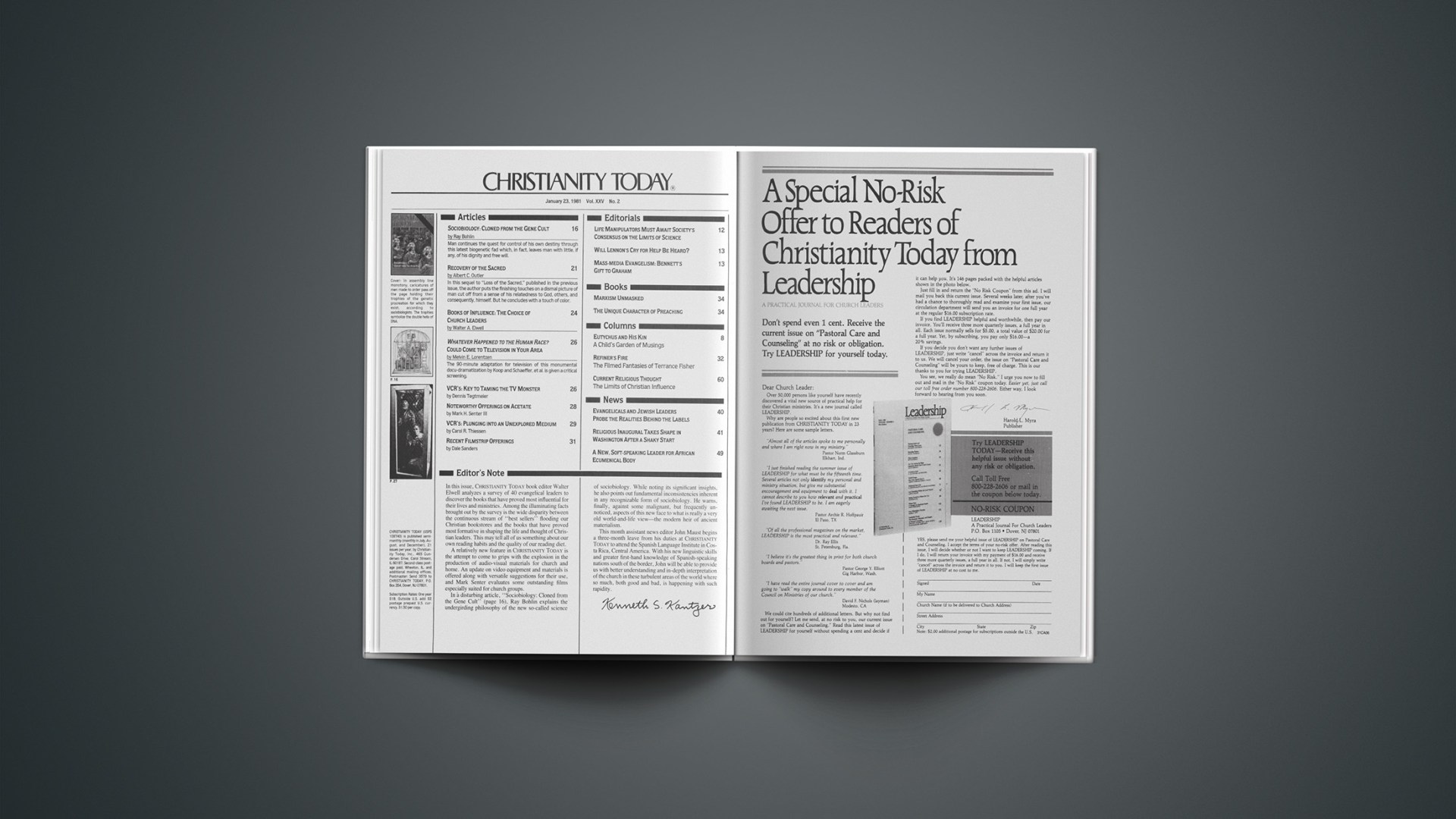In this issue, CHRISTIANITY TODAY book editor Walter Elwell analyzes a survey of 40 evangelical leaders to discover the books that have proved most influential for their lives and ministries. Among the illuminating facts brought out by the survey is the wide disparity between the continuous stream of “best sellers” flooding our Christian bookstores and the books that have proved most formative in shaping the life and thought of Christian leaders. This may tell all of us something about our own reading habits and the quality of our reading diet.
A relatively new feature in CHRISTIANITY TODAY is the attempt to come to grips with the explosion in the production of audio-visual materials for church and home. An update on video equipment and materials is offered along with versatile suggestions for their use, and Mark Senter evaluates some outstanding films especially suited for church groups.
In a disturbing article, “Sociobiology: Cloned from the Gene Cult” (page 16), Ray Bohlin explains the undergirding philosophy of the new so-called science of sociobiology. While noting its significant insights, he also points out fundamental inconsistencies inherent in any recognizable form of sociobiology. He warns, finally, against some malignant, but frequently unnoticed, aspects of this new face to what is really a very old world-and-life view—the modern heir of ancient materialism.
This month assistant news editor John Maust begins a three-month leave from his duties at CHRISTIANITY TODAY to attend the Spanish Language Institute in Costa Rica, Central America. With his new linguistic skills and greater first-hand knowledge of Spanish-speaking nations south of the border, John will be able to provide us with better understanding and in-depth interpretation of the church in these turbulent areas of the world where so much, both good and bad, is happening with such rapidity.










